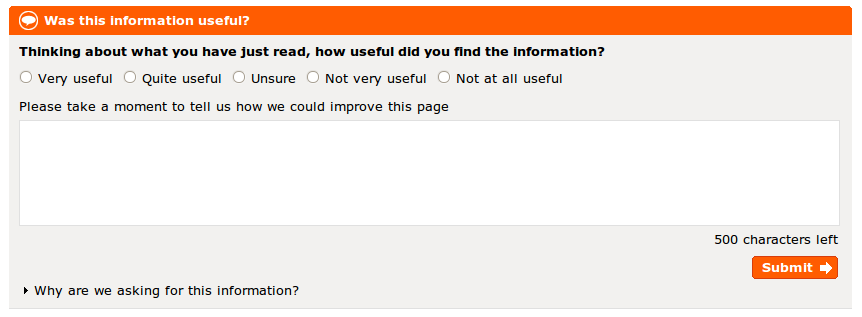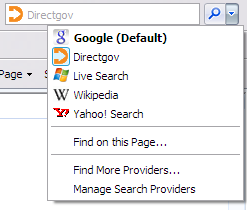
A bit of a tricky moment this morning. As you might have spotted, Downing Street has launched an initiative asking ‘public sector workers’ to help the government find ways to implement the massive spending cuts proposed in Tuesday’s budget ‘in a way that is fair and responsible’. And as has become the norm for such initiatives, there’s a comment-enabled website dedicated to it, built on WordPress. A ‘hooray’ is obligatory at this point, although to be honest, that’s getting a little predictable. 😉
In fact, it’s a return to an initiative launched by Nick Clegg last summer:
The people who are best placed to tell us where money is not being well spent are the teachers, nurses, social workers and other public servants who work so hard day and night on our behalf. Politicians should stop talking over the heads of public servants. We need to listen to the people in the know on how we can better run public services, making sure that every penny of taxpayers’ money is well spent. That’s what ‘Asking People In The Know’ is all about.
… but since it’s all happening again, and since the 2009 website is now giving 404 errors, one must assume it wasn’t especially fruitful.
Anyway… If you have a look at the new website, you’ll note a startling resemblance to the Programme For Government site which I built a few weeks back. It’s very obviously a derivative work, based on my code. I didn’t build it, and I didn’t get paid for it. My contract gives the Crown the right to reuse my work; and in fact, I’m very glad they did. It’s entirely in keeping with the open-source spirit… not to mention the need to find cost savings.
But as anyone following me on Twitter may have spotted, there was one slight hiccup. By convention, WordPress themes include details of their author. The original PFG theme notes me as its originator – obviously. But the derivative theme didn’t. My name had been deleted, and replaced with the names of two people I’ve never met or spoken to: at least one of whom appears to be a direct commercial competitor.
I was not best pleased. I sent out a tweet to that effect: and to the credit of one of the individuals concerned, he subsequently added a line of acknowledgement. My name is duly checked, and I’m happy again.
I am absolutely not suggesting there was any attempt to infringe my intellectual property rights, or deprive me of a deserved payment. I’m perfectly prepared to accept that it was a simple oversight. But I needed to make the point.
Acknowledgement is the currency of the open source movement. There are communities of developers spending their free time building these tools, not to mention businesses freely handing over the fruits of their labours, resulting in you getting phenomenally powerful tools for £0.00. Saying ‘thank you’ is really the least you can do; and it’s often the only ‘payment’ that the open-source contributor receives. Don’t forget.
Not for the first time, Steph Gray lays down a good model to follow. On every page in his Commentariat theme is an explicit credit for the Whitespace theme by Brian Gardner; and there’s a note of thanks to my regular collaborator Simon Wheatley in its style.css file.
And in case anyone’s interested: yes, I do plan to write something for the consultation – it’s also open to ‘private sector partners working within public sector’. Now, I wonder what I might propose?
 I couldn’t help smiling at the news of Directgov going back to its original home in the Cabinet Office. Funny how things go full-circle: launched from within the Cabinet Office in April 2004, to COI (an ‘ideal location’) in March 2006, to DWP in April 2008, back to Cabinet Office in July 2010.
I couldn’t help smiling at the news of Directgov going back to its original home in the Cabinet Office. Funny how things go full-circle: launched from within the Cabinet Office in April 2004, to COI (an ‘ideal location’) in March 2006, to DWP in April 2008, back to Cabinet Office in July 2010.





